- AdventHealth
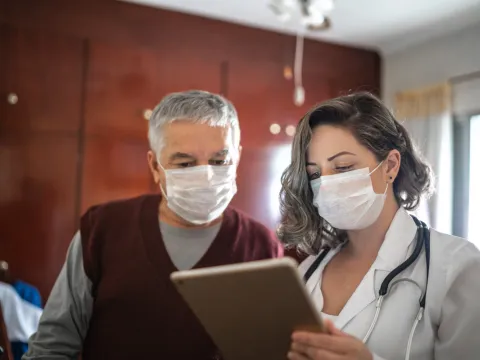
About a year into his job as a chaplain at AdventHealth Orlando in central Florida, Jamie Ricketts, a native of Alberta, Canada, encountered something none of his training prepared him for: a global pandemic had reached the community he serves.
“Who could have imagined something like this happening?” Ricketts said. “The impact is so unprecedented it requires us to innovate as we work.”
Worldwide, according to data released June 10 by Johns Hopkins University, more than 7.2 million people have been infected with COVID-19, the respiratory illness caused by the novel coronavirus. And, globally, more than 412,000 people have died from the disease, the same data reveal. (In the United States, nearly 2 million COVID-19 cases have been reported, and more than 112,000 have died as of June 10.)
But each death is individual, and each is freighted with human need and emotion. Before the pandemic forced lockdowns and restrictions across the country, it was common for a number of family members or friends to be at the bedside when a patient was critically ill or dying. Now, hospitals are no-visitation zones in many places, particularly when COVID-19 illnesses are involved. One person, at most, may be permitted in some circumstances.
It’s not only COVID-19 patients who are cut off from hospital visits, however. New mothers and those recuperating from other illnesses or surgeries also experience minimal visitation.
For chaplains such as Jamie Ricketts, the restrictions are a new challenge in helping families deal with life-changing medical events, particularly when it comes to end-of-life situations.
“It’s frustrating for them not being able to be by their loved one's side,” Ricketts said. “I know that they're going through a wide gamut of emotions and stressors during this time.”
Fortunately for the families of patients in AdventHealth—and for the patients themselves—technology has literally entered the picture, enabling families and patients to communicate via virtual visits. While not the same as being in the room, it is often not only the next-best thing, but also the only thing.
Within the first two-and-a-half weeks of the pandemic’s arrival in Florida, AdventHealth leaders created and implemented a program that put 1,000 Chromebook tablets and computers in facilities for use in connecting patients with family members via video.
“It was a collaboration of several areas [within AdventHealth],” explained Pam Guler, vice president and chief experience officer for the organization. “Chaplains, experience leaders, the IT team and nursing team – coming together very quickly to plan how we can help our families and team members.”
Almost any mass deployment of technology will have details that need to be worked out, but Guler lauded the information technology staff at AdventHealth, who, she said, were able to set up the communications platform in just two days.
“The benefits of these virtual visits for family members is tangible,” Guler said.
“The reaction is deep gratitude for the ability to be there with their family members in this very trying situation. It’s relief, it’s gratitude and it’s grief,” Guler said. “The horror of not being able to be there is alleviated by this platform, and families are desperate for this. They have just been so emotionally moved by being able to talk with their loved ones.”
In one instance, an elderly woman whose COVID-19 case was terminal was unable to see her son, who also had symptoms of the disease. An in-person visit was impossible, and the son lacked the technology at home for a video connection. So, Guler said, a nurse “facilitated a visit from the parking lot, getting him able to see his mom.”
Guler said the nurse, who had a full set of personal protective equipment, or PPE, “held that device so he could see mom and say goodbye. He wasn’t able to do that from home. It was something he will never forget. And our nurse was sobbing as he did this.”
Sometimes, Guler said, the news is far more encouraging. A 20-year-old woman with COVID-19 had been on a ventilator, cut off from family. A virtual visit was arranged with her parents, who were joyous at seeing their daughter after she’d been taken off the ventilator.
Preparing the chaplaincy staff for such encounters—and to provide a new form of service in the midst of crisis—is the responsibility of Greg Ellis and his team. Ellis, assistant vice president for mission and ministry in AdventHealth’s Central Florida Division, said the virtual visits have been important, as has been a “dignity pause,” where the medical staff caring for an individual observe 60 seconds of quiet when a patient passes away to show respect for the patient.
Ellis added, “We also have survivor celebrations when patients leave the unit. The moments when people leave and get better is an important part of them coping as well.”
He said, “All of our chaplains across the company have taken basic training in providing stress support group processes for the clinicians to find release for their emotions and walk through that process.”
Along with highly appreciative families, the chaplains themselves are learning not only new ways to minister to patients and families in restrictive circumstances, but also about the core mission in an unprecedented time.
“Our whole focus here is extending the healing ministry of Jesus Christ,” Chaplain Ricketts said. “I feel like this has been a reminder that a mission firmly grounded in One who is eternal equips us to respond to the unexpected.”
Recent News
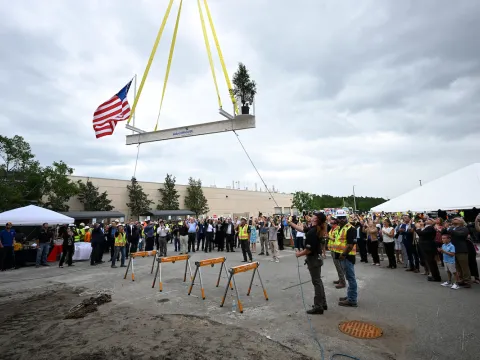
Local leaders, officials, and construction workers gathered today to commemorate a major milestone in the expansion underway at AdventHealth Daytona Beach: placing the final steel beam.
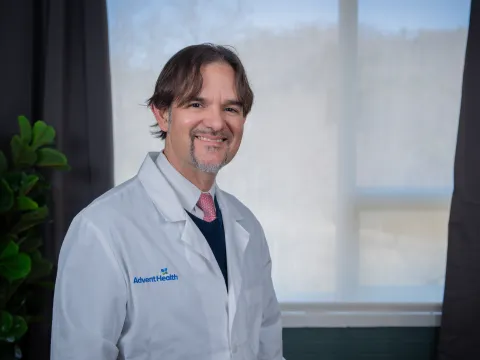
AdventHealth is excited to introduce Eugenio L. Menendez, DO, FACP, to our community of care. He is joining the team at AdventHealth Medical Group Family Medicine at Hendersonville* following the...
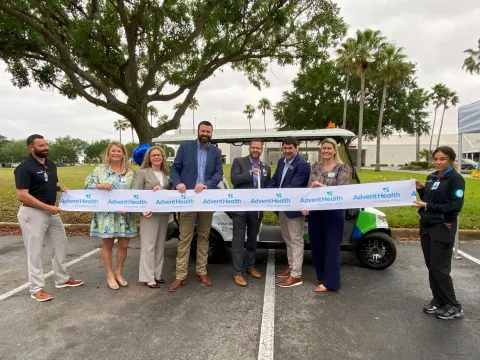
AdventHealth Heart of Florida and AdventHealth Polk Foundation leaders are delighted to unveil a new courtesy visitor shuttle meant to enhance accessibility and comfort for patients.
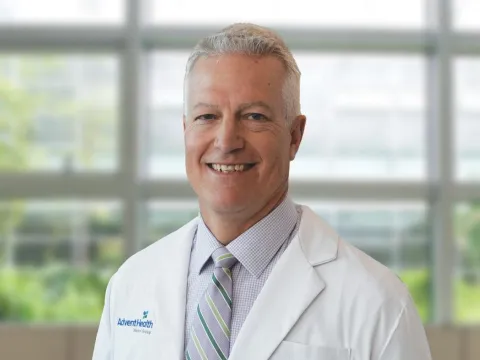
Dr. Jeffrey Keen, a board-certified orthopedic surgeon specializing in adult reconstruction, orthopedic surgery, robotic-assisted surgery, and sports medicine, has returned to AdventHealth Medical...
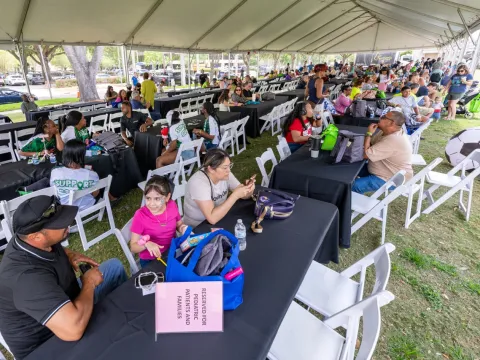
In recognition of National Donate Life Month, nearly 300 transplant patients and their families enjoyed AdventHealth’s 2025 transplant reunion.
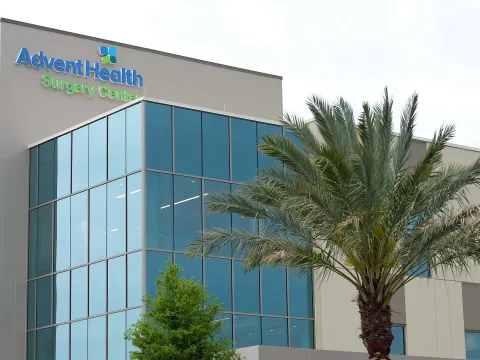
By managing ASCs as distinct entities with tailored operations, financial structures, and physician partnerships, the East Florida Division is fostering collaboration, efficiency, and growth.
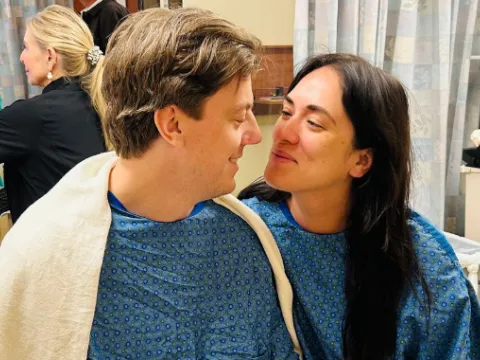
According to the National Kidney Foundation, more than 101,000 people are currently on the organ transplant list in need of a new kidney. However, only about 17,000 transplants happen each year —...
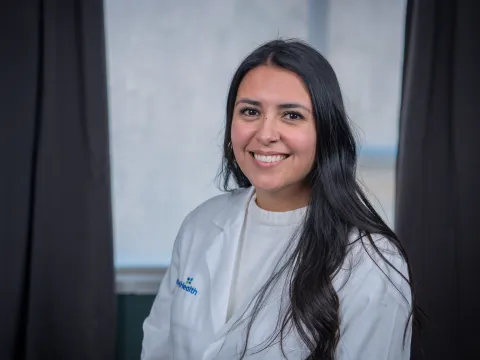
AdventHealth is excited to welcome Shalom Littrell, LCSWA, to its team at AdventHealth Medical Group Psychiatry at Medical Office Building*. Littrell is a Licensed Clinical Social Work Associate and...
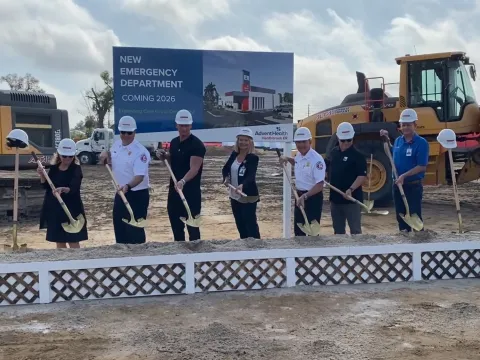
The AdventHealth Heathbrook ER will have 12 exam rooms, including a resuscitation room, a bariatric room, an isolation room, obstetrics-friendly room and pediatric-friendly rooms.
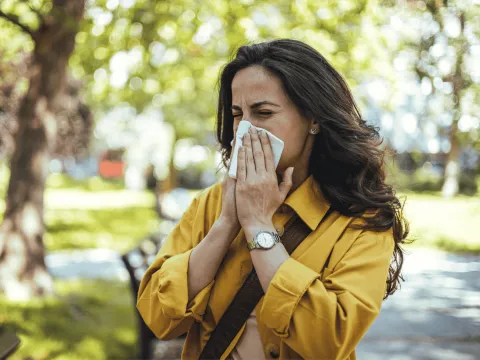
Ming Wu, MD -- a family medicine doctor with AdventHealth Littleton -- talks about the ways to lessen the impact of seasonal allergies this spring.
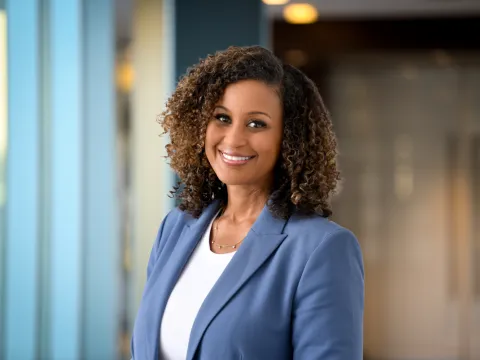
The East Florida Division is forming strong partnerships with independent physicians, driving mutual success and improving hospital throughput.

In life, Sophie Davis touched dozens of hearts. In passing, one of her organs could possibly save thousands of lives.
